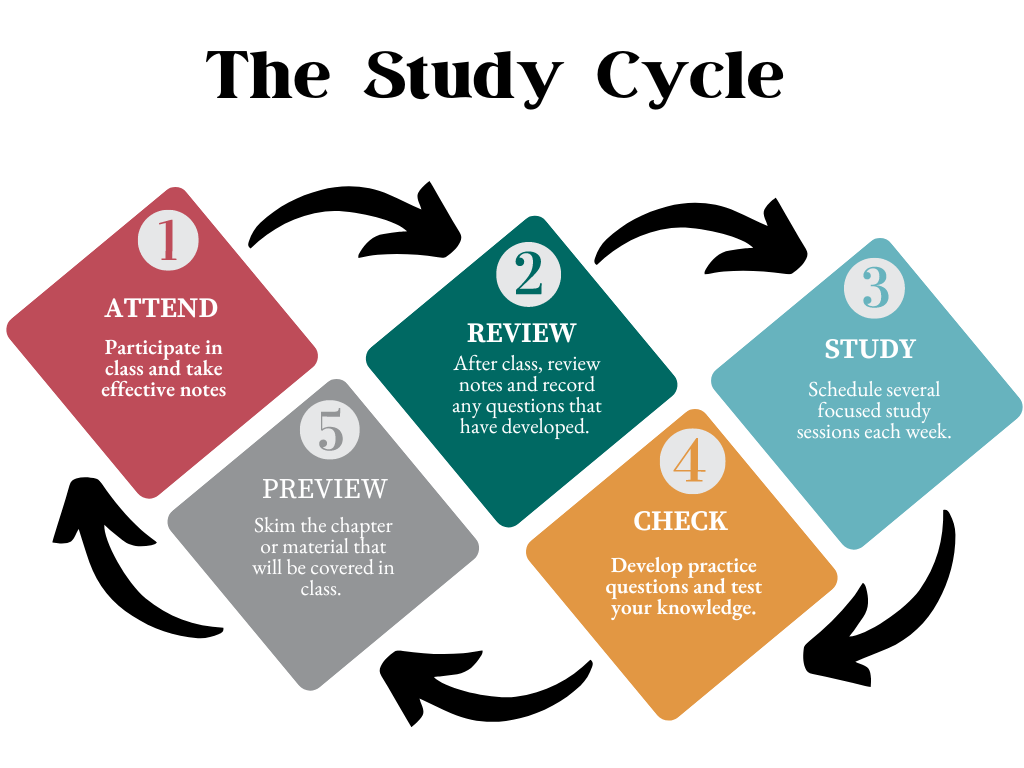
THE STUDY CYCLE: A Continuous Process of Learning
| Phase One: | Read or preview chapters to be covered in class before class. Create a chapter outline or concept map as you read or preview. |
| Phase Two: | Go to class, listen attentively, take notes, participate in class discussion, and ask questions. |
| Phase Three: | As soon as possible after class, review your notes from that day and summarize them in your own words. |
| Phase Four: | Implement focused study sessions and a weekly review. |
FOCUSED STUDY SESSIONS
Our brains do not learn at their best when we sit and try to learn for an extended period of time. With all of today’s distractions, it is also unrealistic to ask yourself to stay focused for hours on end. It is much more realistic to stay focused for 40-60 minutes. Try to do 3-4 focused study sessions per day, 5 days per week.
2-5 minutes: Set specific and realistic study goals for the session
30-45 minutes: Study actively and with focus in a distraction limited environment. Below are active study strategies to utilize.
- Link lecture and text notes by creating one study tool to review.
- Work practice problems.
- Develop example problems and a guide for the process behind the example for better understanding.
- Read the text/lecture notes and summarize verbally what you are reading.
- Teach the information to assess your own level of understanding.
- Develop a concept map, matrix, or outline to organize the material and link ideas.
- Discuss material with a study group.
- Quiz yourself over your lecture and textbook notes with a whiteboard, flashcards, or by making a practice test.
- Reflect on your past exams and create new questions similar to your professor's style to test yourself.
10 minutes: Take a break and move. Get up. Walk around. Grab a snack.
10 minutes: Review the material you just studied
Remember the principle of distributed vs. massed practice. The best study is short, intense, but frequent.
WEEKLY COMPREHENSIVE REVIEW
Once a week, take all of your notes out for a specific course and start from the beginning of your notes and bring yourself to where you are at for that week in class. You do not need to know every concept in your notes. The point is to review to see how the concepts you are learning connect together and are continually building. Also, by reviewing older material weekly, you will not forget the information as easily.
Adapted from "Studying Techniques - LSU Center for Academic Success." Accessed May 26, 2016. http://students.lsu.edu/academicsuccess/studying/strategies/tests/studying/
Revised website, August 14, 2023: https://lsu.edu/cas/earnbettergrades/tipsandtools/takecharge.php